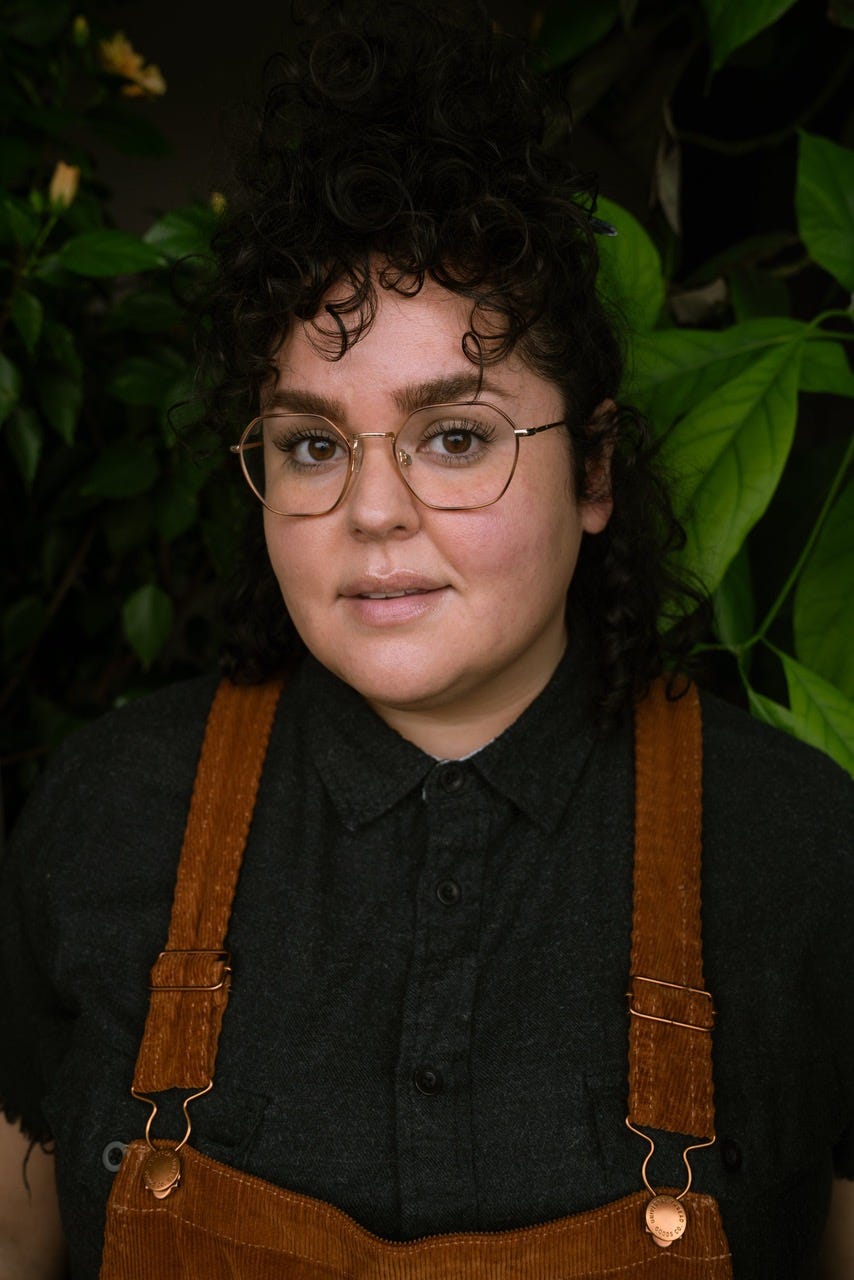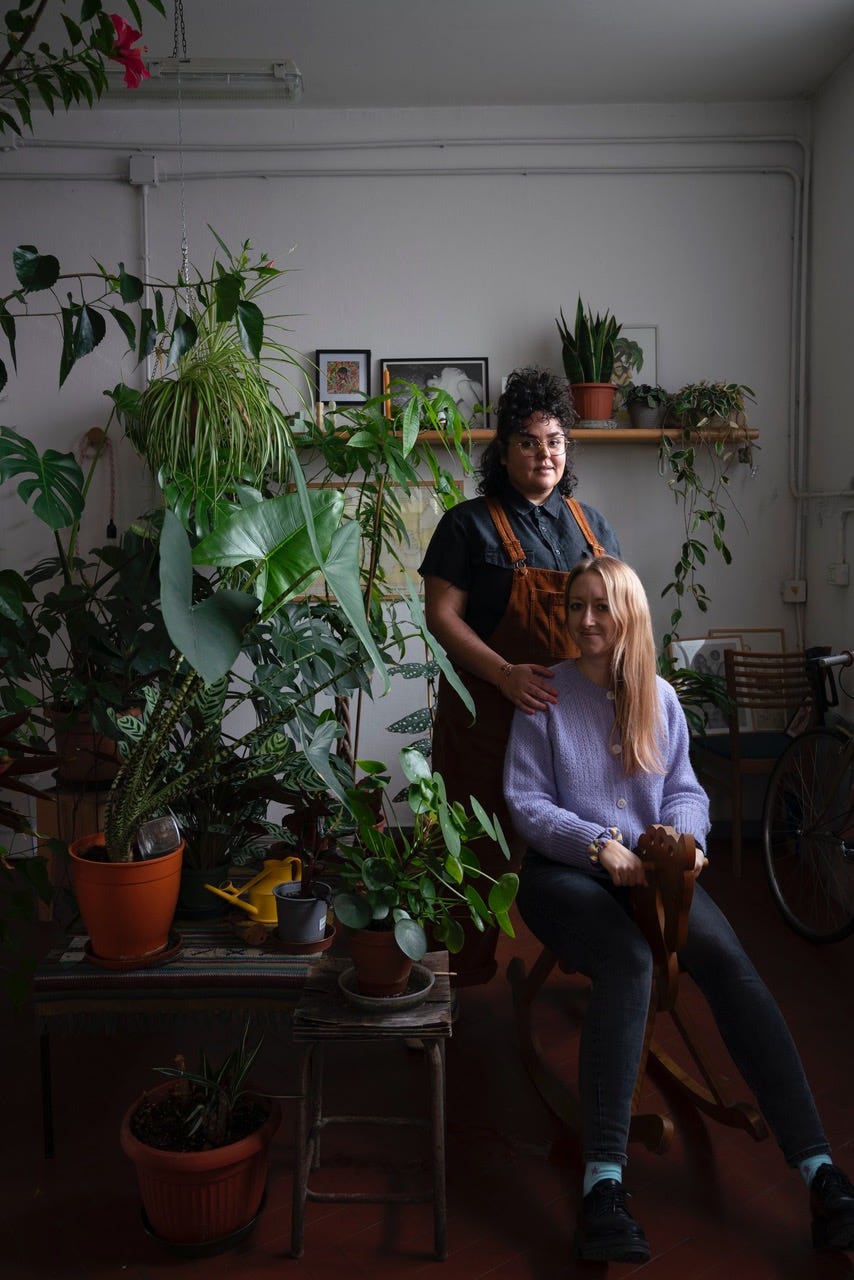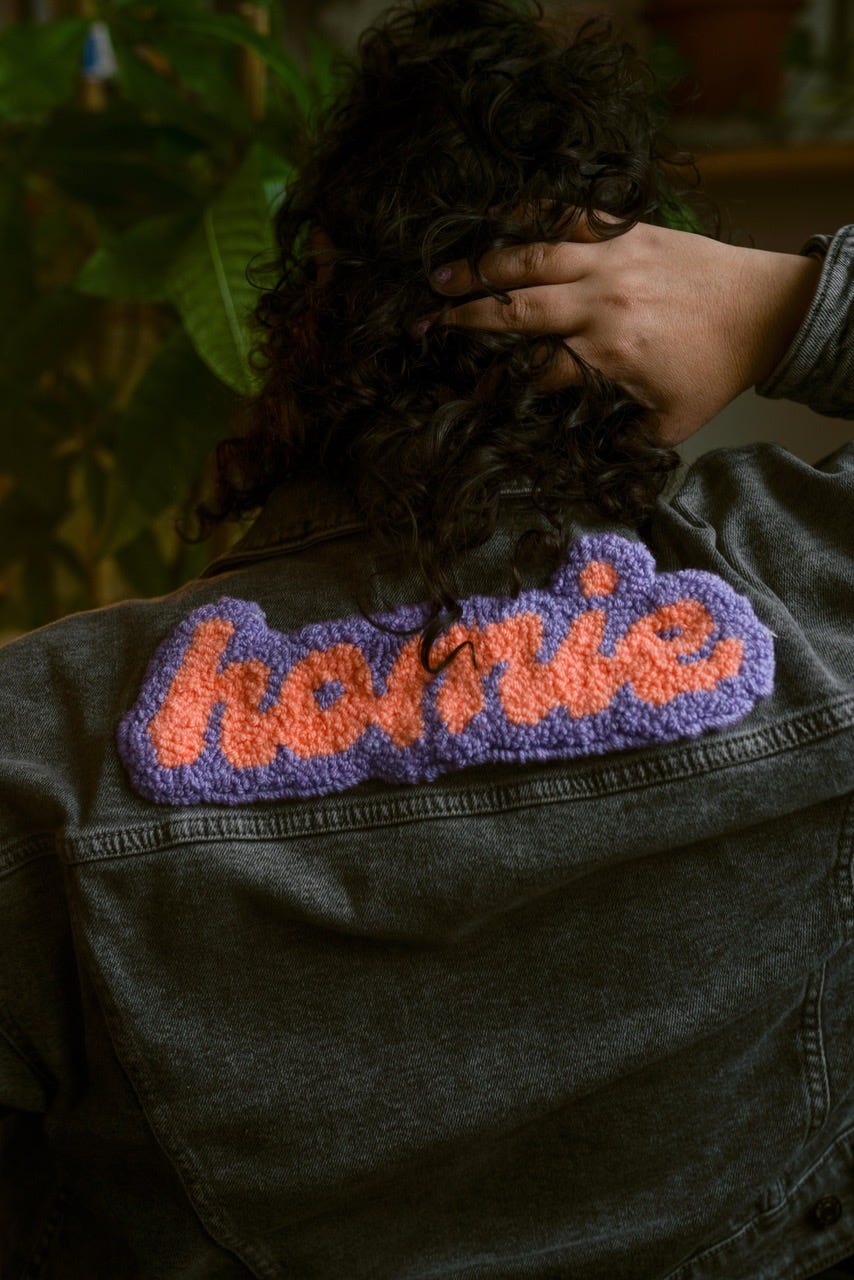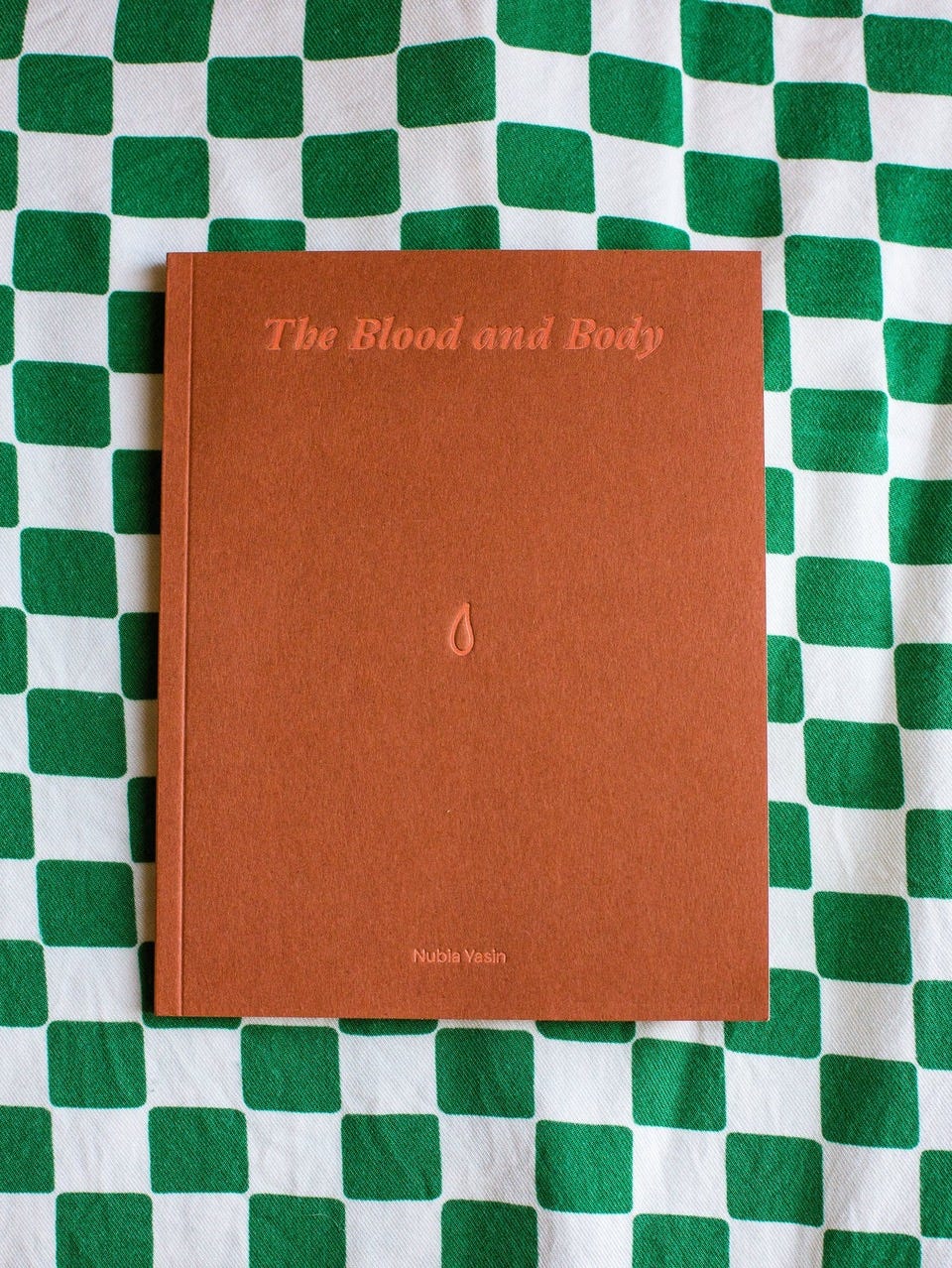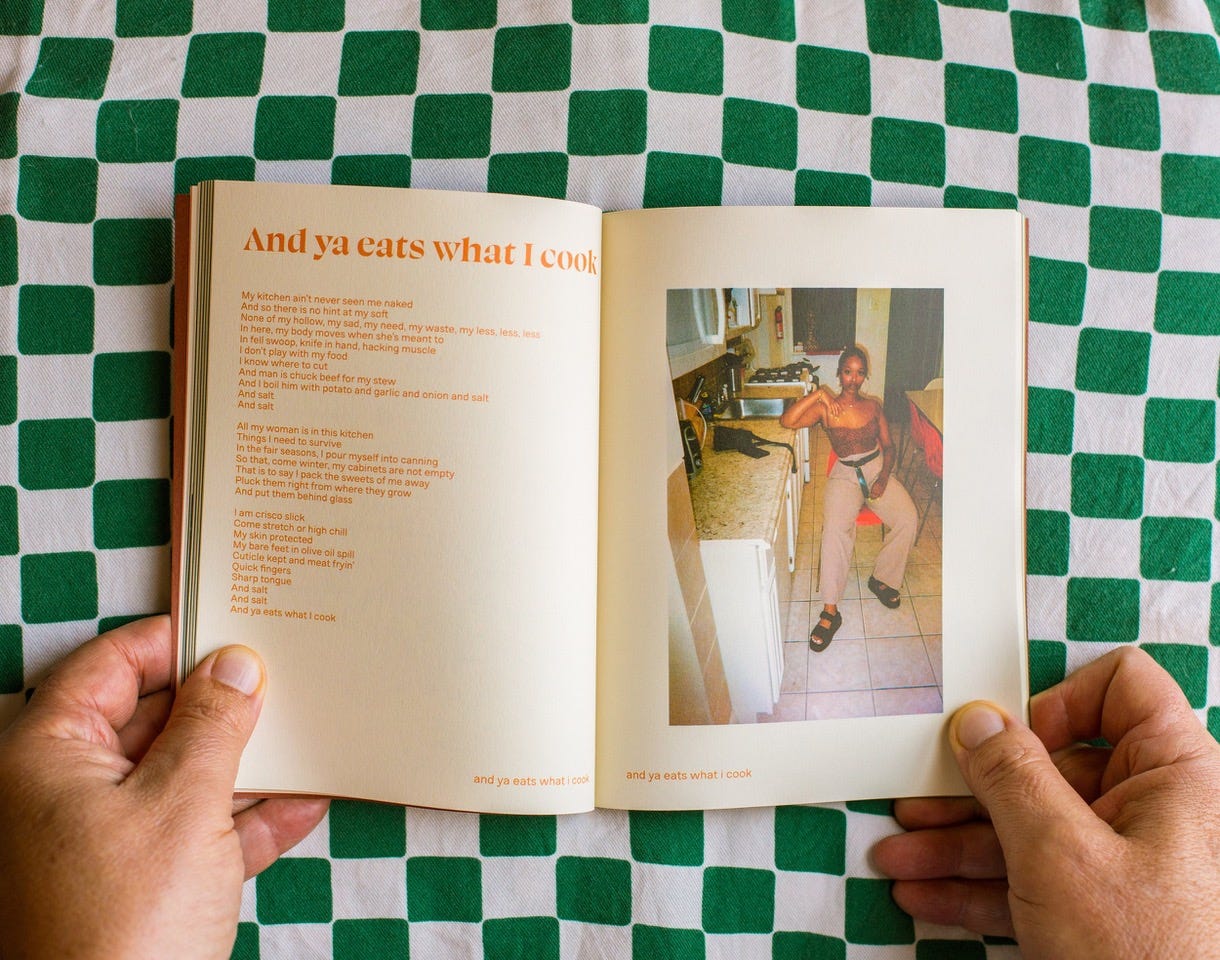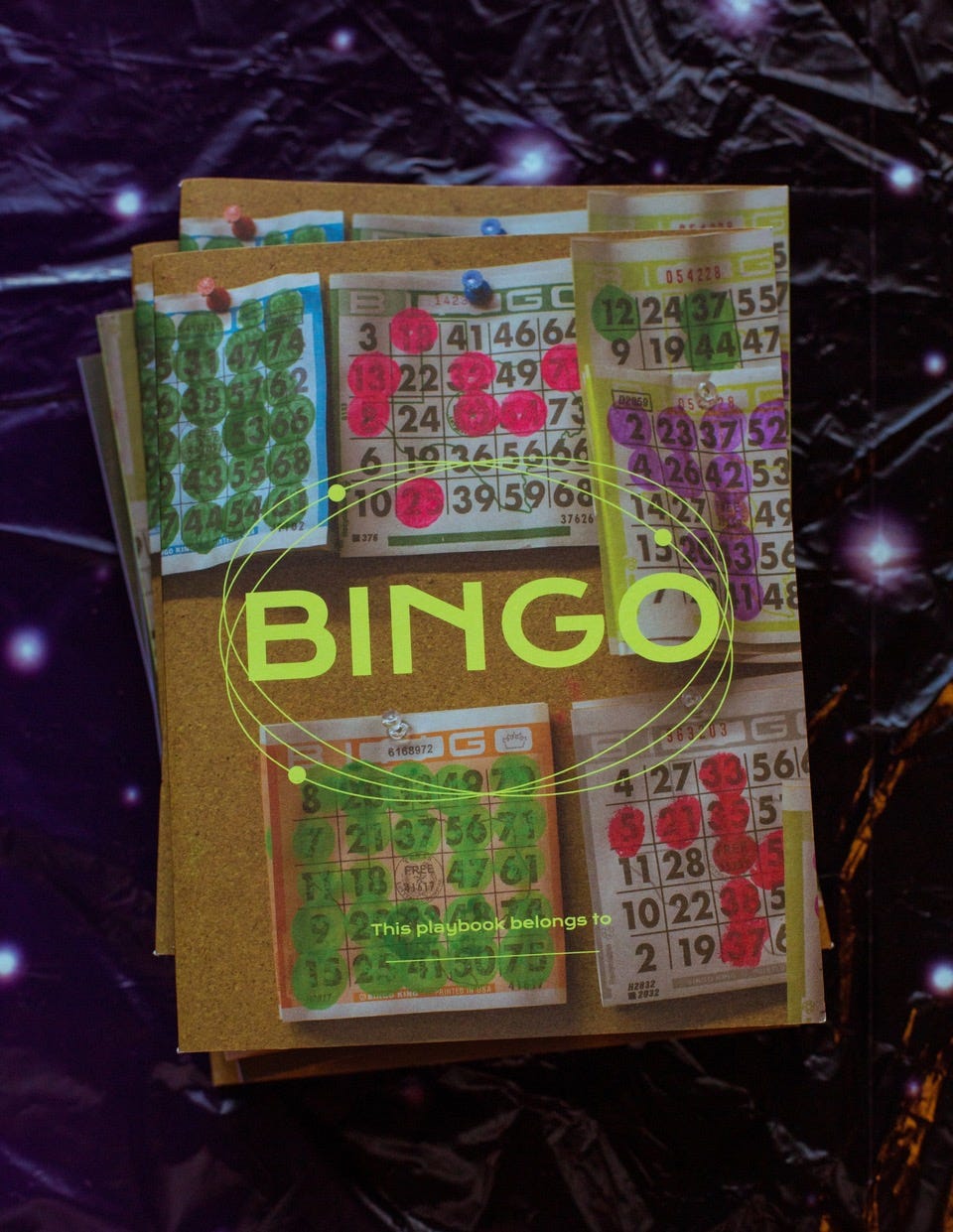Leonardo Bravo:
Hello I'm here with Adriana Monsalve from Homie House Press, and we're doing an interview through Kaleidoscopic Projects. Adriana, I'm now based in Brooklyn and you are in Baltimore, beautiful city of Baltimore. As I mentioned, I've been wanting to have a conversation because I've been following your work with Homie House Press, and I'm so intrigued and interested. It seems like such an incredibly vibrant and generous platform for collaboration. So thank you for being here.
Adriana Monsalve:
Yeah, I'm happy to be here. Thanks for inviting me and thanks for rescheduling.
Leonardo Bravo:
We went back and forth a little bit.
Adriana Monsalve:
Yeah. We moved through, I guess different states and countries and sicknesses <laugh>. So, I'm glad to meet you. This is really sweet. I really love how you're trying to connect art institutions and academia to artists that are doing more DIY work and trying to create spaces where we can feel safe and where we can function in ways that do less harm.
Leonardo Bravo:
Absolutely.
Adriana Monsalve:
Art institutions and academia definitely need a rehaul of all the things from the bottom up. And I think it's gonna be a really slow process, but yeah, I think this is part of that work.
Leonardo Bravo:
Yeah. It requires commitment and patience. <laugh>.
Adriana Monsalve:
Yeah, definitely!
Leonardo Bravo:
So tell us a little bit about Homie House Press and your spark for starting it.
Adriana Monsalve:
So Homie House Press started in the end of 2016. We officially launched December of 2016, so we're six years old. We're gonna be seven, I guess, at the end of this year, which is pretty wild. We still feel like babies, and it’s me and Caterina Ragg, who is based in Milan, Italy. Homie House has always been me in the US and Cate in Italy. I'm pretty nomadic, so I just say USA 'cause I'm always moving. And it's always been a long distance collaboration. It's always been a trans-national collaboration. We met nine years ago in grad school at the University of Westminster, London, and we just connected in a beautiful way.
Adriana Monsalve:
It was in the program of photojournalism and documentary photography. We both have this history of photojournalism and after grad school, we realized we didn’t really wanna be in that world anymore. It's really about the people that we are, who we embody, in the intersections that come together in this body. Me specifically, Latinx, femme immigrant, adjacent, queer, fat, femme, all these different things. And then being in a photo journalistic space where you're having to tell stories from the white gaze and all these things, it was just very harmful.
Leonardo Bravo:
And within a tradition of privilege that has supported and upheld the white male gaze, you know? It's embedded into the history in the 20th century.
Adriana Monsalve:
Oh, absolutely. Yeah. It was really harmful space for me and I consider myself a recovering photojournalist. It's something that when we realized that we no longer wanted to function in that system, it took a lot of risk for us to be, okay, how do we want to create? We know we need this space for ourselves, so let's just start something for ourselves. We had no idea that Homie House would become a collaborative platform that other people would be interested in. We could have never imagined. I could never imagine that I would be doing this full-time at this point. But we started it just for us. And this is like two best friends.
Adriana Monsalve:
At the time I was based in Texas, and Cate’ was in Italy. We were both classically trained photojournalists, so we knew a lot about storytelling, we knew a lot about photography, but we didn't feel like we were strong designers or strong writers per se. And we just didn't know anything about publishing. So it was very much, how are we gonna do this if we don't know how? We don't know how this business works. And basically we were really vulnerable and trusting of each other.
Adriana Monsalve:
We committed to teaching ourselves all this stuff, and for me, I felt that I'm gonna become a stronger writer and I'm gonna become a lot more sure about the ethos and the stance of Homie House Press. The heart, why we're doing this, and really writing manifestos around what this all means. I think it was six months of playing with In Design and doing a lot of research to figure out what we mean and why we're doing this.
Adriana Monsalve:
And within those six months there was a project that I had done that Cate really liked, and she thought that it should be a book. Let's start there. So through trial and error and many drafts where we both didn’t know what we were doing, it took us six months to make one book. We did it so slowly through back and forth emails and it was such a vulnerable time and I feel I'm so glad that we didn't rush anything or that we weren't doing it for the money.
Adriana Monsalve:
Plus we approached everything in a way that does not respect design rules. At the time I was teaching full-time at Texas A&M International University. I was living on the border of Texas and Mexico and I was running the photo department. So doing Home House for me was something that I would do on the weekends and that I would just experiment and be shy about and just be like, well, I can't believe I'm seeing something change and come to life so slowly. And yeah, it was something that after six months we felt like, we like how this looks!
Adriana Monsalve:
We like the energy, we like the vibe!
Adriana Monsalve:
We were also learning how to communicate with printers as we didn't even know what we wanted. We were so new, we didn't know what we were doing, so all that was such a huge process, but they were really patient with us and it was a really good collaboration for the first year. But anyways, the point is when we got that book and we had these 50 copies, they sold out in three weeks! Wow. And how is this selling out? Like who knows about Homie House? We literally just made this thing up. Amazing. And we were tapping into the subculture of zines Yeah. A big moment for art books, that we didn't know was such a thing!
Leonardo Bravo:
How did you go from that moment to starting to participate in art book fairs and the whole kind of publishing and art book world and structure of that.
Adriana Monsalve:
Yeah I feel it happened pretty fast. I was in Texas, so I was on the border of Texas and Mexico and very far removed from art communities and museums and galleries. The closest thing is San Antonio, Texas, and San Antonio's awesome but it's still like two, three hours away. The main reason I was there was because I had gotten a grant to tell stories on the border and then I got the job at the university and it just worked out well.
Adriana Monsalve:
When I finished doing my grant work, I realized hey now I have a publishing house and I can make a book out of this! So when I finished the work, I decided I needed to go and make this book. So I came to DC and when I moved here that's when I realized, there's zine fests (!!!!!) there's all this stuff happening with publishing. And we were being invited to participate and the first thing we did was DC Zine Fest. It was amazing. And we were just treated so amazingly and at that point we only had two books.
Adriana Monsalve:
And I was amazed at how I had never experienced anything like that. I'd never been to a zine fest. I had never experienced how it was just being there in that space. Everyone was so welcoming and coming out to support us and wanting to for us to succeed. And then in that one day, I was just so shocked that we made $800 on our first fair <laugh>
Adriana Monsalve:
So I told Cate, I think this is it. I think like this can be a thing. And it wasn't the same for Cate because in Europe, the zine culture is very different. And the zine culture and the DIY of the art book is still very traditional, and also the stuff that we're talking about is pretty political and it's pretty much immigrant based, just because of my community and because of the person that I am. And there necessarily aren’t spaces that are collecting that in the same way or people that are really excited about that. I guess in Europe, in fairs, I don't know. It's different. It's just a totally different vibe.
Leonardo Bravo:
That leads to an interesting point because what's impressive about Homie House is the quality of the content that you are featuring and highlighting and bringing into the foreground. But also your guiding statement "community over everything". The way those values are embedded, and the quality of those values, into the work you do. When I look at your work, I can't separate the two. Can you talk a little bit about how you identified those values and this sense that both need to be at the forefront in the work.
Adriana Monsalve:
I think it comes from, honestly, it comes from being hurt so much within the art institutions and academic institutions. It comes from realizing that when we're valuing the art created and when we're making art for art's sake, there’s no place to center care. And when we're making Art for Survival, which is what we were doing and what we're continuing to do, when we're centering care first and we're really thinking about care for the artist, care for the community that the artist is talking about, before the product that's being made — there’s just something that can come forward that is restorative, long lasting, and powerful within community.
Adriana Monsalve:
It just makes room for a lot more tenderness and care. And that's really important to us. Because of that and because of our own wounds within the system and because for me I was very interested in telling personal narratives. So I've always been speaking from this space where I'm not interested in creating unless it was coming from my body, just because I had so much to excavate from, just from right here. I don't need to go outside always, it's like right here <laughs>.
Leonardo Bravo:
I love what you say about tenderness and care. You mentioned about the intersections that come together in the body, your body. And I relate to that, being an immigrant myself, undocumented for many years, so basically living in the shadows with a single mother trying her best to support us. Those experiences get embedded in the body. But also finding those safe spaces and the ability to navigate those in between spaces, was always kind of a quality that allowed me to kind of go through this journey.
Adriana Monsalve:
It also stemmed from the fact that we need to be connected to the community we're making art with, to the community we're making art for. Otherwise we're not interested in doing it. And we've seen the harm that's caused when you're doing art for it's sake. And when you're doing art at the expense of other people. So it comes from a need to figure out a way where we can do it with less harm, 'cause we can never promise no harm. Because safe spaces, I feel like it's a really nice idea, but it's not actually a reality, cuz you can't fully create safe space because you never know what people are gonna do. You can only control yourself. So we really wanna cause less harm.
Leonardo Bravo:
Let’s talk about a couple of specific Homie House Press projects and I was thinking of Bingo and the Blood and Body.
Adriana Monsalve:
You're mentioning ones that are like, literally right next to me. <laugh>.
Adriana Monsalve:
The Blood and Body is a project that we did with Nubia Yasin and her sister, Nadifah. This project came to be because collaborations with Homie House all come from such different places. Sometimes it's literally just someone that sent me an email and eventually send me a PDF and I love their work. Other times I'll just meet people at book fairs that I connect with or it's artists that me and Cate are really interested in and we've been following their work on Instagram and we see that their projects could be a book.
Adriana Monsalve:
Nubia was someone I met while we were both doing a residency at Crosstown Arts in Memphis which is a really amazing organization in Memphis, TN. Nubia is a poet and her art form is poetry. And she does really interesting work, she uses her poetry in a spiritual way with divining to connect the femmes in her lineage.
Adriana Monsalve:
She uses the tarot to speak to her ancestors and her descendants. And she was writing all these poems about the specific divining of all the femmes in her lineage. Past to future. This is deep stuff and gorgeous. And it's so interesting. She was sharing it with me and I told her I would love to make a book out of this. And her sister Nadifah is an illustrator and Nubia did this incredible chapter of all these poems and we used family archives from family photo albums. It’s just a really fascinating project. They're both Somali immigrants based in Memphis. So from Somalia to the south, and there's so many levels!!!
Adriana Monsalve:
And then Bingo. Bingo is really playful. This project started about two years ago or so, when Meow Wolf, art playhouse in Denver, reached out to us to commission Homie House to make a bunch of whimsical sci-fi stories for this contraption they were making where you don't use money to pay, you use stories to pay. So it was a really big fabricated ear and you have tell the ear the stories and then a zine comes out. We were very excited as it sounded amazing and super playful. How are we gonna say no that?
Adriana Monsalve:
And so we made this project specifically for that but for various reasons it didn't end up being used by Meow Wolf even though we got paid for the project. This is where Bingo came from and although we did it in 2021 we put it out at the end of last year. Both Cate and I are weaving different stories through this as there had been a project that I had done that I had never used where I was photographing the bingo halls in the basements of churches all along the border. Cate had been photographing a big project that she hadn't used either photographing all these beauty pageants of Filipino beauty queens in Milan. Tthere's a big Filipino community in Milan and the Filipino community is very big on beauty pageants.
Adriana Monsalve:
So we had these very interesting sets of images and we thought maybe we can make a new story with both of these stories and images that we never used. I felt there's similarities between the stories and especially in the visual language as there's lots of numbers and the beauty queens wear these big numbers. So I thought maybe there's a way that I can talk about time travel and I can play with this. And Cate gave me consent to play and came up with a story about it while interweaving our stories to make a totally new timeline and to make a time travel story.
Adriana Monsalve:
And it was so much playing with this whole idea, and we want it to be a time travel book that's for kids, youth, as well that adults can enjoy. So there's space for people to write and join in. Like a workbook and a playbook.
Leonardo Bravo:
The more I hear you describe the work, there's these beautiful juxtapositions, you talk about tenderness and care, truth and joy, and rigor and exuberance. And I love the way you kind of balance these things out. The openness of the ideas and what it actually what it takes to put something out into the world.
Adriana Monsalve:
Yeah, totally.
Leonardo Bravo:
I wanted to ask you about the inspirations along the way. Both artistic and life inspirations, either through your upbringing, the family, and what propelled you to pursue photojournalism and your practice.
Adriana Monsalve:
Gosh. Okay. I'm gonna tell you something 'cause I feel, I feel grounded and safe with you, but I've never talked about this before. So I'm gonna be careful in the way that I say this, but let's just go for it. I very much pushed away from photography and photojournalism, like very specifically, for most of my life. Since I was in elementary school I've always known that I like art. It’s very natural to me. It comes easily for me to create, no matter the medium.
Adriana Monsalve:
I think there's probably a history of it in the sense that my grandpa was a really creative person. My mom is really creative, not necessarily that they're in the arts, but they're just like really quick on their feet. A lot of emerging strategies in their bodies. Both me and my sister are like that when it comes to art. And I was very specific that I didn't wanna go into photography because my mom's youngest brother, this is the part that I've never talked about, my mom's youngest brother is Ruven Afanador (fashion photographer).
Adriana Monsalve:
And I don't talk about it because we're quite estranged. He's caused a lot of harm to a lot of folks. And it's something that I pushed away from a lot for that reason. I carry this in my ancestry. I was just like, I probably could be good at photography too, but I'm not interested. I just had no interest. So actually when I did undergrad I was a ceramics major until senior year.
Adriana Monsalve:
And I switched that year. Because my teachers encouraged me to take the intro to photography class. When I took it that was my senior year, and I was almost graduating.. And of course I did it really begrudgingly. Yet the photo professors said, you're so naturally gifted at this. You have to at least do a minor. And I loved ceramics and I loved sculpture. But I kept feeling, the only thing about sculpture that I don't love is that I miss people, like I’m very social. And my professors invited me to come to India as a way to get the minor in photography.
Adriana Monsalve:
And the thing was, I actually liked it. I was having so much fun. So when I did the minor, I think it was like three weeks full, shooting all the time, and that of course was a huge rush for me. I'm talking all the time. I'm shooting all the time. These are my favorite things. Right. So when we came back the assignment was pretty loose. We were all together in India for three weeks, everyone's basically doing their own project and coming at it from a different angle. But the point is, when you come back, you have to make a book.
Adriana Monsalve:
And that whole experience and then working on it in the summer and making this really one-off beautiful handmade book with the photography from that was just like, I love this. Like, I actually love this <laugh>.
Adriana Monsalve:
I also just saw so many more paths that I could take with photography. So that's kind of how I ended up in it and I stayed a year and a half longer than I wanted to in school, but it was worth it. My teachers were really supportive of me. I was one of the only students that was more interested in storytelling but they allowed me to create my own curriculum. And so yeah I was very invested in storytelling and obviously it's grown in different ways from there. And, I don't necessarily talk about the part about Ruven Afanador, my mom’s brother. Also in my family I'm always told, especially from my cousins in Colombia, that oh, you're just like your uncle. And we couldn't be more different. I'm like a scrappy femme out here hustling in the streets, making books within community <laugh>. We are not the same.
Adriana Monsalve:
So yeah, it's this thing where I know that people that know us compare us but the only commonality is that we're both photographers. So it's my own wound that just keeps coming up.
I got really lucky that I got a two year photo assistant position with John Lowenstein, who is an incredible photojournalist who I was (continue to be) a massive fan of. And he loved me and wanted to teach me all the things! I was full-time with John and I learned so much because he gave me so much access. He was constantly going on these big trips and I was the one editing all his work. I was processing and editing all his negatives. I learned so much about the business and I learned so much about the way photojournalism works and I was very validated in that.
Leonardo Bravo:
So where do you the project going with you and Cate in the next few years? Do you like staying at the scale you're at or do you see a bigger reach and more impact?
Adriana Monsalve:
That's a great question.
I would say that after six years and growing into things that we could never imagined, I feel like Homie House is as much as an educator as it is a publisher. And we love that. I think there is always a feeling for me and Cate that we wish you could make this like a little bit more beautiful, bigger, longer, whatever it is, just a little bit more. LOL I know how capitalist that sounds! But its true, I wish we had more money. So as much as I feel like I'm happy where we are, I do feel like there's been such a change since Covid, like the price of paper has gone up four times!
Adriana Monsalve:
Printing is insane right now, more expensive than ever. So I'm amazed we're still able to do this, but COVID has exasperated everything and it's made it really hard and there definitely was a point last year where we thought maybe we need to close up shop for a little while, for a year or two or something. But we didn't and we were able to just keep making less things. So I do think me and Cate are both really comfortable with risking a lot and that's because of the safety and trust within the sisterhood. So I think we do wanna grow a bit more.
Adriana Monsalve:
I think something else that I want for Homie House is when we do fairs and this isn't shade to organizers. It's just facts. We're always put in zine sections which I love and I feel like my ethos and my practice is very much from that space. So I love being in the zines and we make good money in the zines. But I would love it if an organizer would put us in the photo section just because it would disrupt the space. The photo spaces are always so traditional so I feel Homie House is perfect for that and to really make more conversation and to continue to challenge the photo space.
Adriana Monsalve:
So I think ultimately I feel it basically falls into the umbrella of I wanna keep growing and I wanna keep doing it in beautiful ways.
Leonardo Bravo:
Well Adriana, this has been such an honor to speak with you and totally inspiring. So inspiring to hear about your work and I hope we continue to be in conversation. And I hope it leads to actually some beautiful collaborations down the road.
Adriana Monsalve:
Well this has been a really sweet connection. I'm so glad we spoke.
For more information and to purchase Homie House Press titles:
http://www.adrianastories.com
IG: @homiehousepresss




